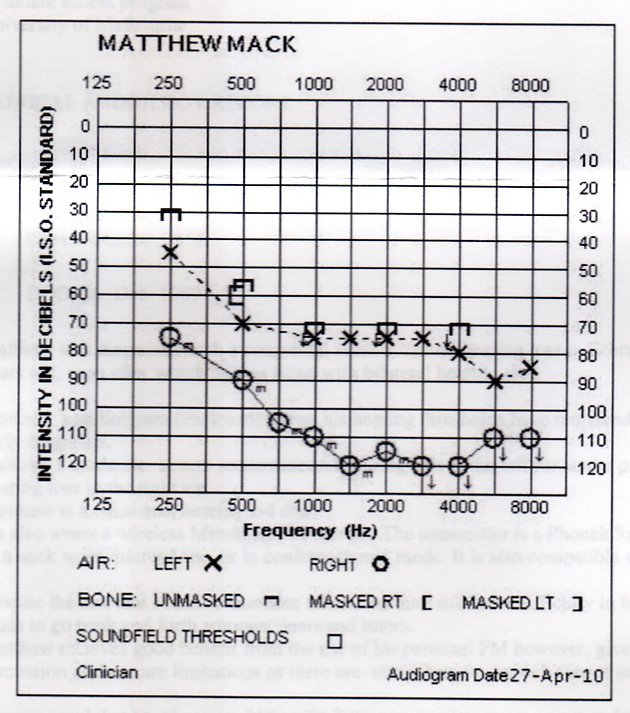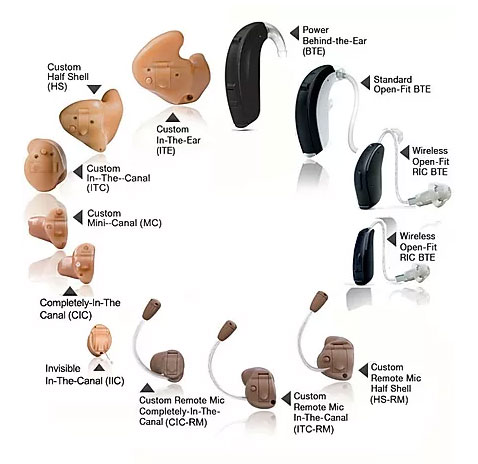Recently the US Food and Drug Administration (FDA) authorised the first over-the-counter hearing aid software intended to be used with the Apple AirPods pro headphones and being someone (if you didn’t know me already!) who’s hard-of-hearing and uses a hearing aid in the left ear, my brain has naturally ended up pondering the implication of this in light of various experiences and interactions I’ve had.
My opinion
In a nutshell I think it’s a good thing. More competition is always healthy. Making hearing more accessible is always a good thing. Being able to hear is fundamental to maintaining healthy social relationships and in turn, staving off dementia for older people.
The part that worries me is the misconceptions that people in general tend to have when it comes to needing (or upgrading their) hearing aids, or knowledge around what audiologists are there for, that these AirPods pros will introduce.
Cherry picking a quote or two
The FDA’s OTC hearing aid regulations established in October 2022 represented a significant step toward helping ensure that adults with mild to moderate hearing loss have improved access to more safe and effective product options.
Two things that jump out at me from the above:
- “mild-to-moderate hearing loss” unfortunately does not suit my scenario – my hearing loss is moderate-severe in my left ear (where I have a hearing aid) and severe/profound in the right ear (which can be assumed to be effectively deaf).
While I’m lucky to be young enough such that people don’t really think about asking/discussing my hearing loss (although I’m always open to satisfying peoples’ curiosity) I do have an auntie with moderate loss that wondered about whether the AirPods would be useful for me or not. And I suspect well-meaning but people not-in-the-know might end up asking the same. - “improved access to more safe and effective product options”
What were people using before?! Ear trumpets?!
About hearing tests and how hearing aids work, at a level that would probably make my audiologist bristle with the sheer inaccuracy
The rule enabled consumers with perceived mild to moderate hearing impairment to purchase hearing aids directly from stores or online retailers without the need for a medical exam, prescription or seeing an audiologist.
Very honestly I’m not sure what the process is in the US, but down here in Australia it’s pretty easy to ‘just’ get a basic hearing test, and get an audiogram. Here’s mine for reference:

When conducting a basic hearing test, you wear a pair of headphones and the audiologist plays the various pitches (the Frequency on the x-axis ) at lower and lower volumes until you ‘just’ can’t hear it. That’s where the mark appears on the audiogram for that pitch. And so in essence what is being recorded is a series of numbers at each of the pitches that is easily entered into a hearing aid to make the adjustments.
What happens within the hearing aid (again, at a basic level) is akin to what audio engineers (or music producers, anyone who mixes music) call an equalizer (EQ), which essentially adjusts the volumes of various pitch points of incoming audio depending on the values on your audiogram. It’s pretty straightforward on a theoretical level, that’s why you see even SpecSavers offering hearing services, and audiometrists (who are more like technicians) instead of audiologists.
And that’s basically also what’s happening with your AirPods, except the EQ is done in your phone settings, via Accessibility > Headphone Accommodations (instructions here!). Granted, AirPods do have additional features which I don’t care to look up, just that I’ll ignorantly say that hearing aid companies are way ahead of the curve.
My current hearing aid (Widex 440, purposely chose top of the range) has programming for scenarios such as noisy restaurants, being in the car, mixed environment scenarios with music, such that it can optimise for hearing human speech. The user-adjustments (unfortunately only via phone app, grr) are also a tad more customisable than other apps I’ve seen and allow me to make tweaks or unique programs for different situations.
Comparison of pricing
Even when considering the slightly more expensive price point of Apple products I’d wager they’re still cheaper than entry-level hearing aids: for reference, at the time of writing, my current top-of-the-range hearing aid was $5000AUD for just the one, the iPhone 16 Pro base price is $1799AUD, Airpods 4 starts at $219AUD. And you’d probably get more out of the iPhone + AirPods combo than a new hearing aid for the same price. Pretty reasonable!
Understandably when one is poor or doesn’t have much knowledge of technology, putting down a large sum of money for a hearing aid (or two) can be a tough decision when they don’t really have a way to know what the end result would be until after they’ve bought the device and had it configured.
That said cheaper hearing aids do exist, and the company I go to (Soundfair) does have a program where they repurpose donated old hearing aids to give to those who can’t afford them.
Now onto the parts I worry about
After bouncing the following talking points off a colleague I realised that the introduction of the AirPods doesn’t necessarily increase the % of people who would be negatively affected. Mostly changes the goalposts, but for the purposes of educating others in this post I’ll still write of them here.
(Usually old) People refusing to believe they have a hearing problem until enough other people point it out
My understanding of the usual old-age hearing loss that happens is that it tends to be gradual, so it winds up a bit like a boiling frog scenario where the affected person doesn’t realise they’re getting deafer and deafer, and are unlikely to take notice. It’s usually when there’s enough people around them (presumably those they don’t interact with regularly) that notice and point it out. Note that this scenario assumes they’re not getting regular hearing tests, this is usually what happens before they get their hearing tests.
Some percentage of those people would undoubtedly be in some kind of denial for whatever reason. Maybe it’s the stigma of hearing loss, or having a disability (a natural human occurrence that needs gentle but firm support); it could be because they don’t know how it could be better (understandable, I’m guilty of this).
Naturally $$$ would also be a factor for old people on a pension (though I’m not familiar with health insurance/government coverage. If they’ve already got an iPhone (and the Apple user experience is much friendlier for the less tech-inclined) then having AirPods would be a natural upgrade. On that tangent, it does make me wonder about old people who are more isolated from others 🙁
More generally speaking that’s not to say that younger people with hearing loss aren’t included in the above, but for those who suffer hearing loss due to some accident, getting past any stigma and acceptance of the difference of their situation is a natural occurrence. Also, they tend to be less prevalent in the media though that’s definitely changed a bit for the better.
People thinking the AirPods should be enough
Similar to the previous point one of my worry points is that if one’s hearing is gradually declining and it reaches a point where the AirPods are no longer sufficient. I would assume at that point that if they’re using the AirPods, they’ve gotten a hearing test somewhere in order to configure them, but ideally they’d also be getting regular hearing tests via an audiologist to diagnose any gradual hearing loss. It’s worth pointing out that I personally don’t trust self-administered hearing tests because I wouldn’t trust others to use the correct volume settings: “if you can’t hear a sound, just turn up the volume!”
The other point is more of a general ignorance where for example, if someone doesn’t know much about the nature of hearing loss and suggests to me “Have you tried the AirPods?”, which usually means they don’t know that AirPods are not sufficient for me (due to their not knowing the severity of my hearing loss). Thankfully I’m chill enough to recognise that and educate others rather than be grumbly about it.
It seems so much easier to lose AirPods than some traditional hearing aids
Loosely speaking, hearing aids can be categorised into behind-the-ear (BTE) and in-the-ear (ITE).
But the main deal for me is that AirPods are pretty similar to ITE hearing aids (but not in-the-canal), and it’s always bothered me that they seem so easy to just yoink out of peoples’ ears whenever I see them out in the wild. In the least a BTE hearing aid would be much harder to do so, but I digress.
Arguably the chance of losing an AirPod is pretty similar to losing a hearing aid, and there would undoubtedly be some subset of forgetful (old) people who would keep misplacing their hearing aids/AirPods and losing them.
So I’d say this talking point isn’t so much an issue with AirPods specifically, but moreso acknowledging the same issue with losing hearing aids also applies here. This argument might actually be more in favour of the AirPods since buying a new one would be cheaper than purchasing a new hearing aid.
In the end…
There will be undoubtedly more pressure on audiologists to offer more than just diagnostic and hearing aid fitting services, of which the non-profit organisation I go to (Soundfair) is doing an excellent job in also offering consultation/support services as well as doing community building. I also suspect that for-the-masses services like the ones offered by Costco and SpecSavers would also struggle a bit since they’re also targeting the more common market.
I’ve also noticed a gradual shift to basic services being offered by audiometrists rather than audiologists (similar to how I’ve noticed dental hygienists being a thing as opposed to dentists themselves) which makes me feel a bit itchy , but I’d attribute that moreso to the economy and (increased?) demand from the general population. My advice on that front is that if you have a mild-moderate loss and just need a hearing aid fitting, then an audiometrist is fine. But if you have a more serious issue or need more understanding (e.g. in a medical sense) of what’s going on inside your ear, then an audiologist (or ear-nose-throat specialist) is the one you go to.
That said, if you know me, then know that my proverbial door is always open for consultation, questions, insight, into hearing loss, and the least I can do is be someone who can help allay your worries or provide some understanding into the process. If you’ve got a crotchety grandpa that refuses to get hearing aids, then I’d be happy to sit down and have a chat with him.


Be First to Comment